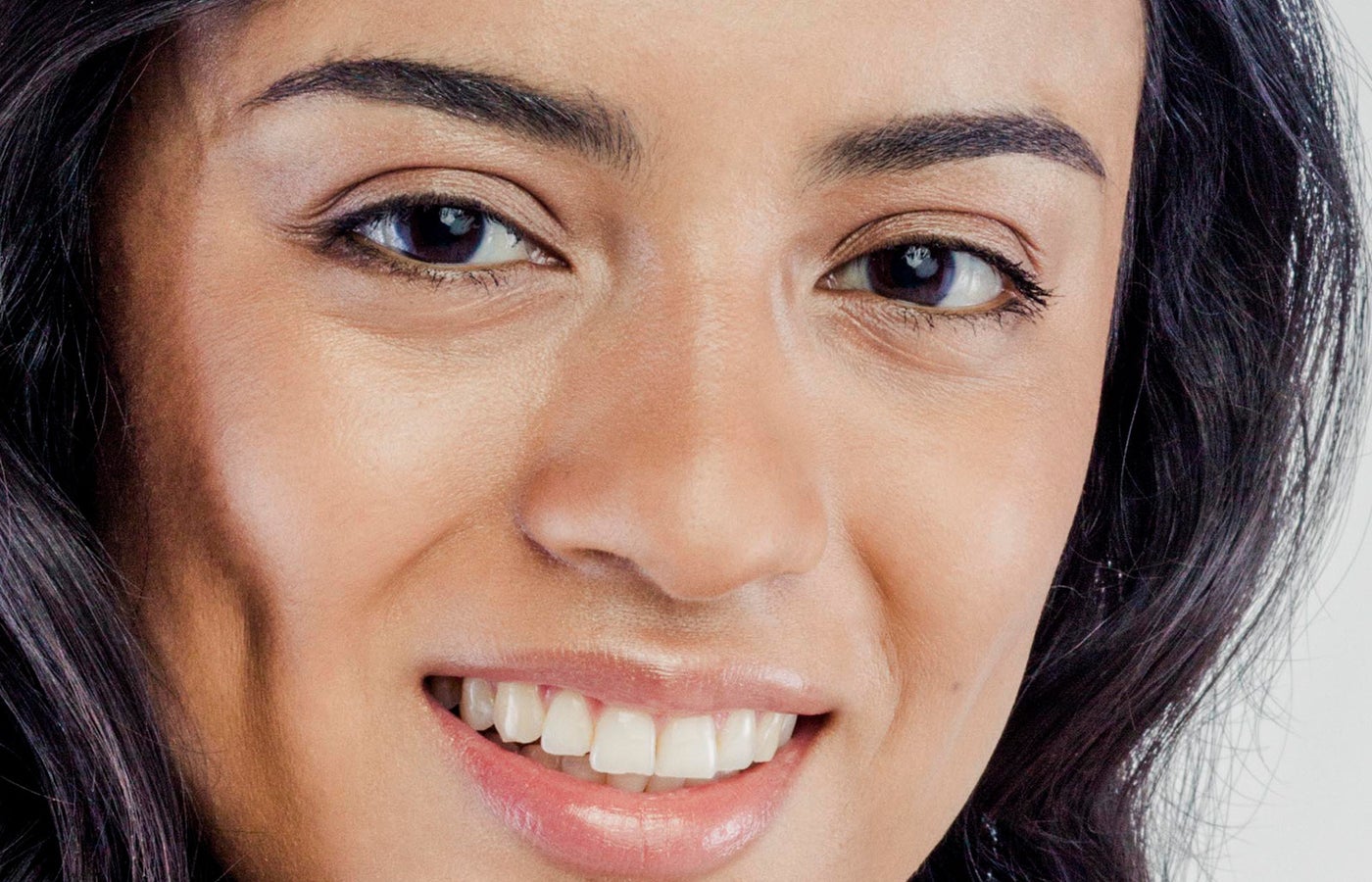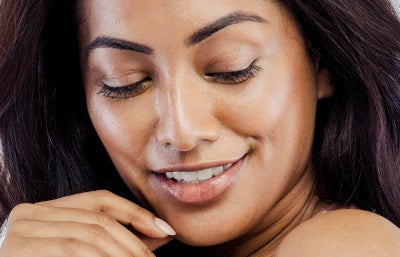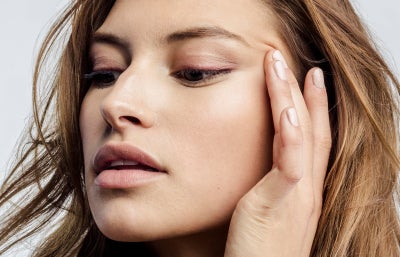Thin Eyebrows & Lashes
Eyebrows and eyelashes are a major component of facial attractiveness. When the lashes and brows start to thin, they can make the face look older and detract from the entire facial aesthetic, especially the eyes. Here, we explain the best solutions, from in-office options to at-home alternatives, to achieve thicker brows and fuller, longer lashes.
Eyebrows and eyelashes are a major component of facial attractiveness. When the lashes and brows start to thin, they can make the face look older and detract from the entire facial aesthetic, especially the eyes. Here, we explain the best solutions, from in-office options to at-home alternatives, to achieve thicker brows and fuller, longer lashes.
Top treatments
Other options to consider
Skin-care solutions
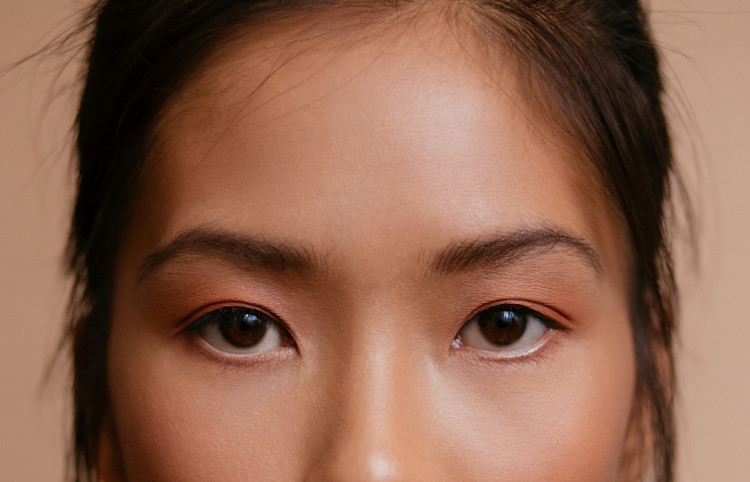
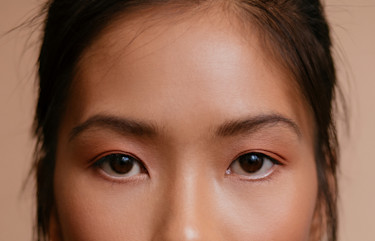
With thick eyebrows and eyelashes dominating social feeds, thinning has become more of a concern. Some people just have naturally thin hair in these areas, while others develop thinning over time, for a number of reasons.
Causes of thinning eyebrows and lashes include:
- Aging. Over time, hair follicles shrink and produce thinner hair. Sometimes they stop producing hair altogether.
- Skin conditions. When inflammation from psoriasis, eczema, and seborrheic dermatitis makes the skin itchy, scratching and rubbing can cause hair to fall out.
- Medical conditions. A thyroid deficiency; a hormonal imbalance; or an autoimmune disease, like alopecia areata, can lead to eyebrow thinning. Blepharitis, which is the inflammation of the eyelids, can lead to lash shedding.
- Plucking eyebrows. Tweezing can damage your hair follicles, and overplucking can damage them to the point that they can’t produce hair anymore (as many who went all in on ’90s eyebrows can attest).
- Irritation from cosmetics. Leaving eye makeup on for long periods of time or using eyelash extensions can irritate lashes and lead to an increase in shedding.
- Trichotillomania is a condition in which a person pulls out their own lashes or brows, when under emotional or psychological distress.
Related: 3 Treatments for Better Eyebrows: Microblading, Microshading & Microfeathering
These are the treatments that doctors and RealSelf members say are best at creating full, thick eyebrows and lashes.
- Microblading is a semipermanent tattoo that mimics real hair strokes, to fill out thin eyebrows and make them look more symmetrical. The technique uses a handheld tool containing dozens of tiny needles that deposit pigment into the superficial layers of the skin. A numbing cream is applied first, so the procedure shouldn’t be painful. The pigment doesn’t go as deep as with a traditional tattoo, so the effect fades over one to three years. Sun exposure, skin-care products like retinoids, and facial treatments can cause the pigment to lighten faster, so avoid them if you like your look and want to extend your results. Related: Brow Lamination is the Pain-Free Alternative to Microblading The procedure is usually done in two phases. Four to six weeks after the first session, brows will lighten, soften, and shrink as they heal. Most technicians offer a touch-up at that point, to perfect the application. “During this appointment, your technician can assess the retention and make modifications. Microblading has a tendency to look very ‘crisp’ immediately after, but as it heals, it becomes softer and somewhat blended,” says Dr. K. Roxanne Grawe, a plastic surgeon in Powell, Ohio, in a RealSelf Q&A. When the procedure is performed by an expert, the brow will have a very natural shape. Consult with an experienced, certified provider and ask to see before and after photos, to avoid a botched microblading procedure. Find doctors that offer microblading
- Latisse (the brand name for bimatoprost) is approved by the U.S. Food and Drug Administration (FDA) for stimulating eyelash growth, but many providers also see excellent results when the serum is applied to thin eyebrows. It’s available by prescription or can be purchased directly at your cosmetic physician’s office. It’s also available via sites that offer online consultations with dermatologists, such as Apostrophe. Research shows improvement in both eyebrow darkness and fullness after one to two months, with continued improvement for seven months. Latisse works by prolonging the growth phase of lash and brow hairs. Once desired length and fullness are achieved, Latisse can be used a few times a week to maintain results. Without maintenance, your lashes and eyebrows will return to their original appearance. Be aware, however, that your skin may become slightly red and show increased pigmentation if you're using it off-label on your eyebrows, warns Austin, Texas, oculoplastic surgeon Dr. Tanuj Nakra in a RealSelf Q&A. It’s also possible to develop permanent darkening of the iris when used directly in the eye, for glaucoma (although this is unlikely to occur when Latisse is used on the lash line, doctors still consider it a risk). Find doctors that offer Latisse
- Eyebrow transplant surgery takes hair follicles from other areas of the body—usually, the back of the scalp or the area behind the ears—and transplants them to the brow area in order to treat sparse brows. There are two main eyebrow transplant techniques: follicular unit transplant (FUT) and follicular unit extraction (FUE). Each is done in a hair surgeon’s office, under a local anesthetic. The donor hair follicles are removed, then each individual hair is meticulously implanted, following the direction of the natural growth of the other eyebrow strands. One eyebrow may require 250 to 400 donor hairs. You should see noticeable growth after four to six months and full results at around 10 months. Because not all transplanted hair survives, it might take more than one round of surgery to achieve the thick, bushy eyebrows of your dreams. You’ll also need to keep trimming your new eyebrow hair; it will keep growing, like the scalp hair it is. Although you’ll need to maintain your brows, a transplant is the only permanent solution and produces a natural look. In fact, a 2017 study found that “excellent and beautiful results” are likely when the procedure is performed by an experienced surgeon using modern techniques. Find doctors that offer eyebrow transplant surgery
Rogaine (minoxidil) is an over-the-counter product that regrows hair and prevents further hair loss. While Rogaine is usually used on the scalp, research shows that it’s also moderately effective at increasing eyebrow growth. In one four-month study, it worked as well as Latisse for 50% of participants.
Precisely how Rogaine works to grow hair isn’t clear, but it’s believed to enlarge hair follicles and lengthen the growing phase of hair. With more follicles in the growth phase, you’ll see more hair coverage and a fuller brow.
For it to work effectively, be sure to apply Rogaine daily. If you stop using it, you’ll lose the hair previously gained, within a few months.
For those who don’t want to head into their provider’s office to treat their brows and lashes, there are treatments you can buy at the store, without having to make an appointment with your doctor.
First, there are lash and brow stimulants, like the RevitaLash Advanced Eyelash Conditioner and Serum and Vegamour VegaBrow Volumizing Serum, both of which use biotin (along with other good-for-growth ingredients) to increase hair growth with just a swipe of the formula each night.
Makeup—like mascara, brow pomade, eyeliner, and eyebrow pencils—can also result in thicker-looking lashes and brows, when applied correctly.
Related: Eyelash Growth Serums: Experts Explain How They Work and how to Choose the Best One
Updated July 2, 2021
